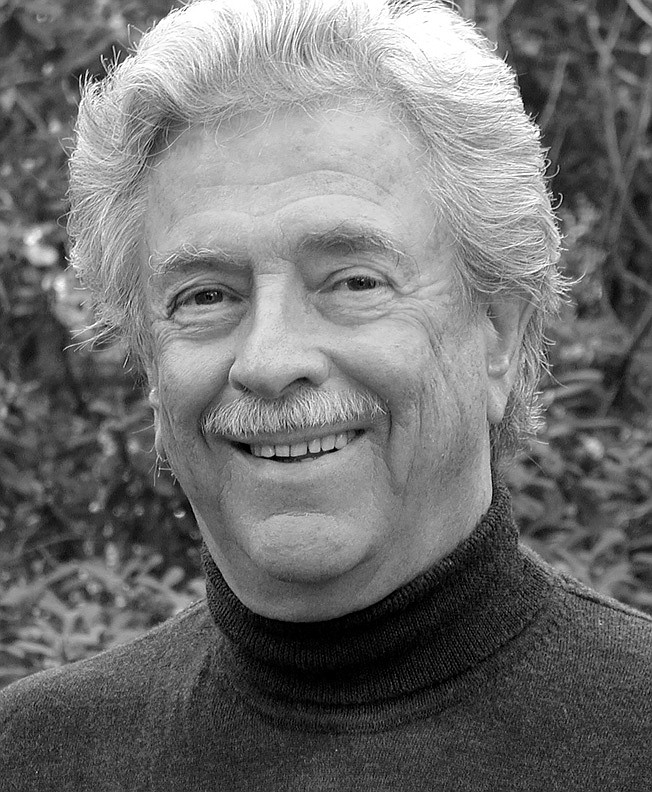Wayne Peterson, American composer and educator whose "The Face of the Night, the Heart of the Dark" was awarded the Pulitzer Prize for Music in 1992 over the public objections of the Pulitzer jury, died April 7 at his home in San Francisco. He was 93.
His son Grant Peterson confirmed the death but said a cause had not yet been determined.
For 30 years, Peterson had been a composer, pianist and professor at San Francisco State University, respected by most musicians who knew his work and highly regarded by his students. The Pulitzer - and the ensuing squabble - changed his life.
Another composition, Ralph Shapey's hour-long piece for orchestra, "Concerto Fantastique," had been the unanimous choice of the music jury - George Perle, Roger Reynolds and Harvey Sollberger, all distinguished composers and academics. Perle and Reynolds were past Pulitzer winners.
But the Pulitzer board, which oversees all Pulitzer prizes and has traditionally consisted mostly of news- paper editors or publishers with an occasional author or scholar, overruled the jury and voted to give the prize to Peterson.
It was not the first time that the Pulitzer board had rejected distinguished work for reasons of its own. For the drama prize, Edward Albee's "Who's Afraid of Virginia Woolf ?" was dis- missed in 1963 as insufficiently "uplifting," while Thomas Pynchon's "Gravity's Rainbow" (another unani- mous choice) was ruled too "overwritten," "confusing" and "obscene" in 1974.
All of which left Peterson in a tough spot. "I had sent the work in as a lark," he told the New York Times, "and I didn't think I had even a remote chance of winning."
He went so far as to say that he himself would have voted for the Shapey piece had he been on the jury. But he accepted the prize.
Peterson's award has stood the test of time. Writing in the Wall Street Journal in 2017 after a Boston performance of "The Face of the Night, the Heart of the Dark," critic Allan Kozinn called it a "rewarding work, built of quickly shifting, angular figures that bristle with ten- sion and are punctuated by high-energy, sometimes brutal chordal bursts. ... This is intensely kinetic music."
Wayne Turner Peterson was born in Albert Lea, Minn., on Sept. 3, 1927. At 7, he was bedridden for months with scarlet fever, which inspired a lifelong love for reading.
During what Peterson would later recall as an unhappy childhood, he studied piano and took a particular interest in jazz. By his late teens, he was touring with a big band and one could often hear the influences of bebop on his later music.
Awarded a Fulbright Fellowship in 1952, he stud- ied in England at the Royal Academy of Music, where he worked with the composers Lennox Berkeley and Howard Ferguson. He taught at what became San Francisco State University from 1960 to 1991 and was a guest professor of composition at Stanford University from 1992 to 1994.
In all, Peterson wrote more than 80 works for orchestra, chorus and chamber ensembles. His awards included fellowships and commissions from the Guggenheim, Koussevitzky and Fromm foundations as well as an award of distinction from the American Academy of Arts and Letters.
No female composer won until 1983 (Ellen Taaffe Zwilich for her Symphony No. 1) and not until 1997 was jazz or pop music admitted into the Pulitzer pantheon, when Wynton Marsalis won for "Blood on the Fields." In 2018, Kendrick Lamar's album "DAMN." became the first hip-hop work to be so honored.
Peterson's marriage to Harriet Christensen ended in divorce. His partner of 42 years, Ruth Knier, predeceased him in death by seven weeks.
Survivors include four sons from his marriage, Alan Peterson and Drew Peterson, both of Greenbrae, Calif., Craig Peterson of San Rafael, Calif., and Grant Peterson of Chico, Calif.; and two grandchildren.

